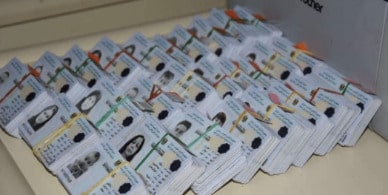Digital ID holders in Iraq will be exempt from routine security checks by police, according to a report from Shafaq News. Police in the governorate of Nineveh announced that the some two million holders of the country’s unified ID cards will no longer be subject to police checks, in order to improve efficiency in law enforcement and government transactions.
The capital of Nineveh, Mosul, was a central node in the conflict with the Islamic State, and was under IS control from June 2014 to July 2017. Much of it was destroyed or heavily damaged, causing administrative headaches, snags and delays as infrastructure was rebuilt. Many healthcare facilities have still not yet been fully redeveloped.
The Iraqi government introduced the unified ID card, which includes biometric data as a security measure, in 2017. The digital identity cards store personal information such as the holder’s name, fingerprint and face biometrics, and other personal details. They are required for transactions such as opening a bank account or registering to vote in elections. The cards are made in-country with technology provided by Veridos, which says more than 20 million of the digital IDs had been issued by the end of 2021.
Iraq has enthusiastically pursued digital transformation with the introduction of biometric voter registration and plans to expand the national eID program. According to +964, in January, the Ministry of the Interior announced that no new paper-based ID cards would be issued to Iraqis as of March 1.
Article: Digital ID holders exempt from security checks in Iraq region
